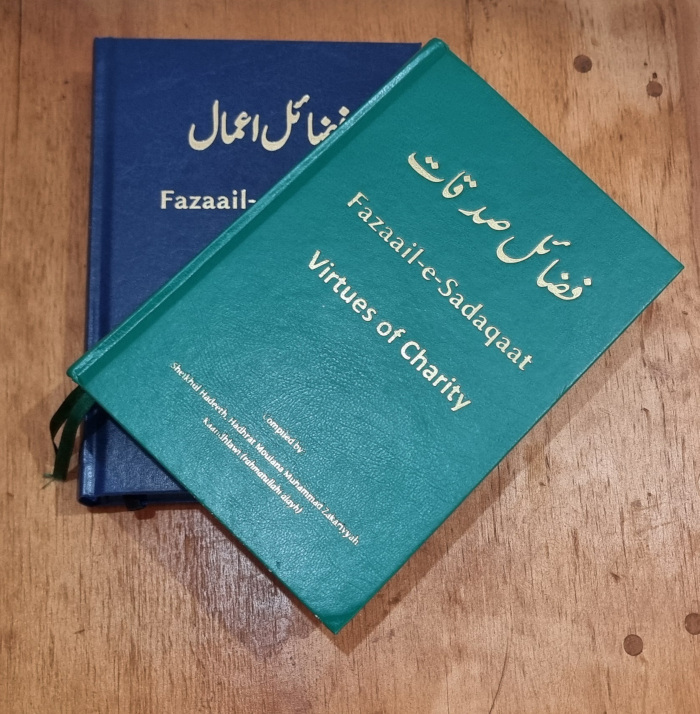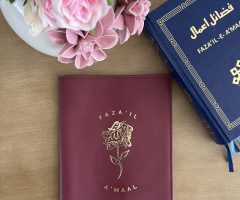
The Twelve Qualities of the True Ulama - Fourth Quality (Part Two)
(Continuing with the incident of Hazrat Haatim [rahimahullah])
After advising Qadhi Muhammed bin Muqaatil (rahimahullah) regarding his luxurious lifestyle, Hazrat Haatim (rahimahullah) had heard of an Aalim known as Tanaafisi, living in the city of Qazween, who was leading an even more luxurious life. Hence, he set out from Rayy to Qazween with the intention of advising and correcting him.
On reaching Qazween and coming to Tanaafisi, Hazrat Haatim (rahimahullah) said to him, “I am a man from a non-Arab country. I desire that you teach me my deen from the very beginning. I would like you to show me how to make wudhu, since wudhu is the key to salaah.”
Tanaafisi said, “With great pleasure.” He then requested someone to fetch water. Thereafter, he performed wudhu before Hazrat Haatim (rahimahullah) to show him how it is performed.
After Tanaafisi had demonstrated wudhu, Hazrat Haatim (rahimahullah) said to him, “Allow me to perform wudhu before you so that I may learn it properly.” At this, Tanaafisi got up from the place of wudhu and Hazrat Haatim (rahimahullah) sat in his place.
Hazrat Haatim (rahimahullah) began to perform wudhu and washed his hands four times. Tanaafisi said, “This is israaf (wastage). You should wash every limb thrice only.” Hazrat Haatim (rahimahullah) said, “Subhaanallahil Azeem! It is wastage if I use an extra handful of water for wudhu, but it is not wastage when you use all these luxuries and comforts which I see you own?”
It was then that Tanaafisi realised that Hazrat Haatim (rahimahullah) had not come to learn, but rather to advise and correct him.
After this, Hazrat Haatim (rahimahullah) went to Baghdad. When Imaam Ahmed bin Hambal (rahimahullah) learnt about him and his condition, he came to see the Sheikh.
Imaam Ahmed (rahimahullah) asked him, “How can one be safe from the world?” Hazrat Haatim (rahimahullah) replied, “You cannot protect yourself from the evil influence of the world unless you possess four qualities:
- You should forgive the people who are impolite to you or deal with you with ignorance.
- You should not behave towards them in the same manner.
- You should spend on others whatever you have.
- You should not desire the wealth of people.
Later, when Hazrat Haatim (rahimahullah) reached Madinah Munawwarah and people heard of him, they came to see him and gathered around him. Hazrat Haatim (rahimahullah) asked the people, “Which city is this?” The people said, “This is the city of Rasulullah (sallallahu ‘alaihi wasallam).”
Hazrat Haatim (rahimahullah) then asked, “Which is the palace of Rasulullah (sallallahu ‘alaihi wasallam)? I would like to perform two rakaats in his palace.” The people responded that Rasulullah (sallallahu ‘alaihi wasallam) had not lived in a palace, rather he lived in a very small house with a low-roof.
Hazrat Haatim (rahimahullah) said, “Then where are the palaces of the Sahaabah (radhiyallahu ‘anhum)? Show me their palaces.” The people replied, “The Sahaabah (radhiyallahu ‘anhum) also had no palaces to live in. They also lived in small houses with low roofs, a little above the ground.”
Hazrat Haatim (rahimahullah) said, “Then, this must be the city of Fir’aun.” Hearing this, the people got offended and arrested Hazrat Haatim (rahimahullah) (as they felt that he had shown disrespect to the city of Rasulullah (sallallahu ‘alaihi wasallam) by calling it the city of Fir’aun) and presented him before the Ameer (governor) of Madinah Munawwarah, informing him that this non-Arab man had called the city of Madinah Tayyibah the city of Fir’aun.
When the Ameer (governor) demanded an explanation, Hazrat Haatim (rahimahullah) said, “Do not be hasty (in reaching a conclusion and passing judgement). Listen to the entire story. I come from a non-Arab country. When I entered this city, I asked what city it was, and they said that it was the city of Rasulullah (sallallahu ‘alaihi wasallam).”
The Sheikh then repeated the entire conversation that had passed between him and the people of Madinah Munawwarah, and thereafter, recited the following verse from the Qur’aan Majeed:
لَقَدۡ کَانَ لَکُمۡ فِیۡ رَسُوۡلِ اللّٰہِ اُسۡوَۃٌ حَسَنَۃٌ لِّمَنۡ کَانَ یَرۡجُوا اللّٰہَ وَ الۡیَوۡمَ الۡاٰخِرَ وَ ذَکَرَ اللّٰہَ کَثِیۡرًا ﴿ؕ۲۱﴾
Indeed, there is for you an excellent example (to emulate) in the Rasul of Allah for the one who has hope to meet Allah and (he fears) the Last Day, and remembers Allah in abundance (i.e. for the one who is a perfect mu’min – believer). (Surah Ahzaab v.21)
This verse means that all times, in every aspect of our lives, we should look at the example set by Rasulullah (sallallahu ‘alaihi wasallam) and then follow his blessed example.
Afterwards, Hazrat Haatim (rahimahullah) said, “Allah Ta‘ala commands us to follow in the footsteps of Rasulullah (sallallahu ‘alaihi wasallam). Now, you yourself tell me whether you are following the sunnah of Rasulullah (sallallahu ‘alaihi wasallam) or the ways of Fir’aun?” Hearing this, the people released him.
At this point, it is important to bear in mind that according to Shari’ah, taking benefit and enjoyment from the mubaah (permissible) things of the world or owning a lot of wealth is not haraam nor impermissible. However, having such worldly luxuries creates love in the heart for them, to such an extent that it becomes difficult thereafter for one to live without them.
Then, a person becomes occupied in getting these things for himself, and in this way, he remains concerned about looking for ways to increase his income. The person whose main concern is to increase his wealth, then in order to acquire the wealth, he will be forced to compromise in his deen, and at times, he will even fall into sins.
If it was possible for one to get involved in the dunya while remaining safe from its harms, then Rasulullah (sallallahu ‘alaihi wasallam) would have not have commanded his ummah not to get too involved in the dunya. In fact, he himself was so particular about refraining from the luxuries of the dunya that he did not even wish to wear a kurta that had some embroidery on it.
(Fazaa’il-e-Sadaqaat [English] pg. 439-441, [Urdu] pg. 484-486)
 Ihyaaud Deen An Effort to Revive Deen in Totality
Ihyaaud Deen An Effort to Revive Deen in Totality



